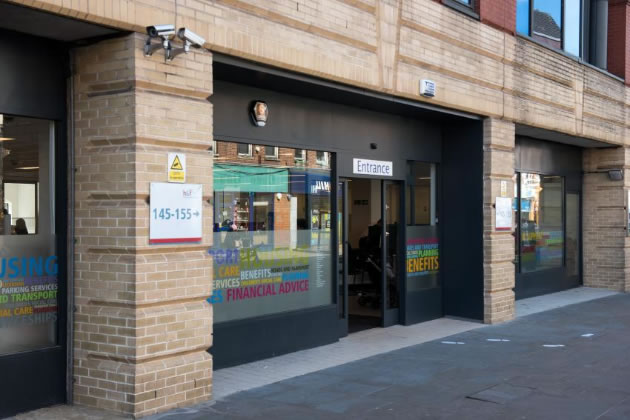Council Seeks to Set Up its Own Housing Company
Vehicle would not build but would buy and renovate existing homes
 Hammersmith & Fulham Council's Housing Department on King Street
Hammersmith & Fulham Council's Housing Department on King Street
October 30, 2024
Hammersmith and Fulham Council is looking to establish its own housing company to increase the number of affordable homes in the borough and help address temporary accommodation pressures. The proposed company would not be a developer but would instead look to purchase properties and renovate homes requiring works, so bringing them back into use.
As with other local authorities across London, Hammersmith and Fulham is facing acute housing challenges. Its waiting list currently sits at around 3,000 residents, with significant pressure on its temporary accommodation provision.
According to a paper due to go before Cabinet next Monday (November 4), boroughs in the capital are this year collectively expected to exceed their homelessness budgets by £250 million. The same paper recommends Cabinet members approve establishing a new company to help tackle such issues and increase the range of housing options available to residents.
If green-lit next week, the decision will focus on founding the company only. Its specific functions, if approved, will operate based on a detailed business plan.
Three principal functions of the proposed company are, however, included in the report. These are: to purchase properties; to bring complex void Housing Revenue Account (HRA) premises back into use – ones where a tenant has moved out and work is needed to bring it back to a reasonable standard; and to address the increased demand for temporary accommodation.
Properties bought by the company from sources including the council’s own development programme and the open market could become available for intermediate rent, low-cost home ownership or use as temporary accommodation. For the void HRA properties, which are homes requiring significant investment which cannot be covered by social rent, the housing company would acquire them on a lease, refurbish them and then let them out at intermediate rent. Once the lease has ended, the properties could be returned to the council to become social homes or let to the local authority for use as temporary accommodation.
Potential benefits to establishing the company raised in the report include providing additional revenue, faster decision making and greater control over tenancy management. Officers wrote that establishing a council-owned company ‘presents an opportunity for the council to address housing need’.
It will enable the local authority to acquire and manage housing, the paper continued, and generate greater revenue streams. “This is an essential response to the need for increased housing supply, particularly in this borough where market conditions and affordability pressures are most acute.”
Asked about the proposed company, the council reiterated the report is only seeking consent to create its structure. Each theme or objective will require a detailed business case approved by Cabinet, describing how the project will be financed and resourced.
The local authority added the company will be light in terms of structure, and that it is not expected to develop new homes in lieu of the council’s development programme or to take on significant debt.
Other councils have established owned companies with varying success. One of the most high-profile examples in London was Croydon Council’s Brick by Brick, a developer founded in 2016 which was wound up after losing millions.
Hammersmith and Fulham points out that the borough is already densely developed and does not compare like-for-like with somewhere like Croydon. Brick by Brick, unlike Hammersmith and Fulham Council’s potential company, also differed in that it was charged with the building of affordable homes.
Ben Lynch - Local Democracy Reporter